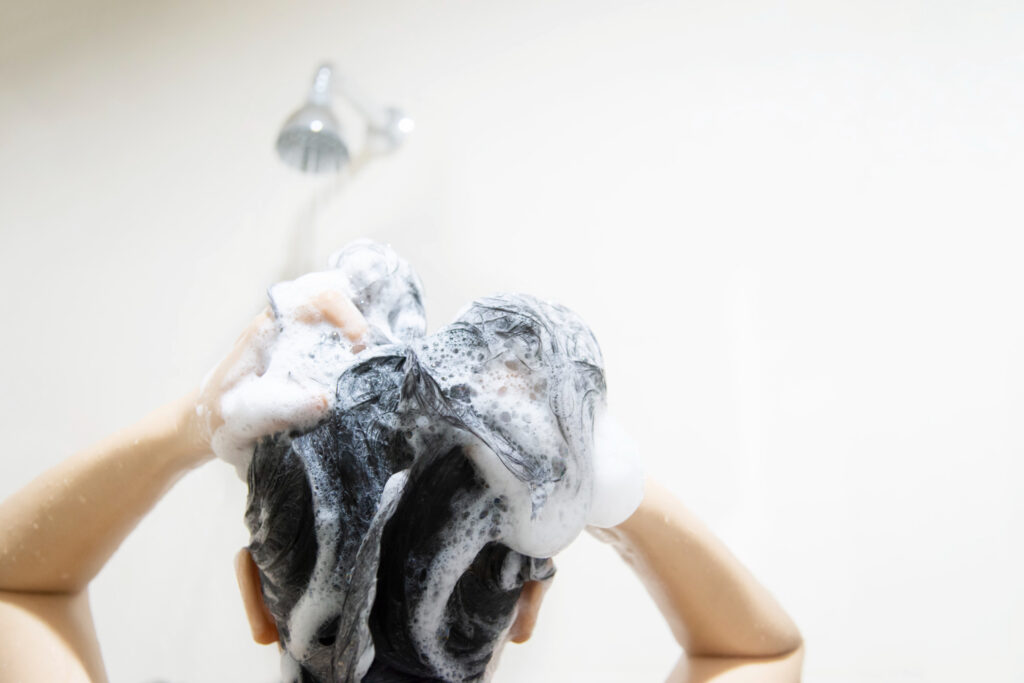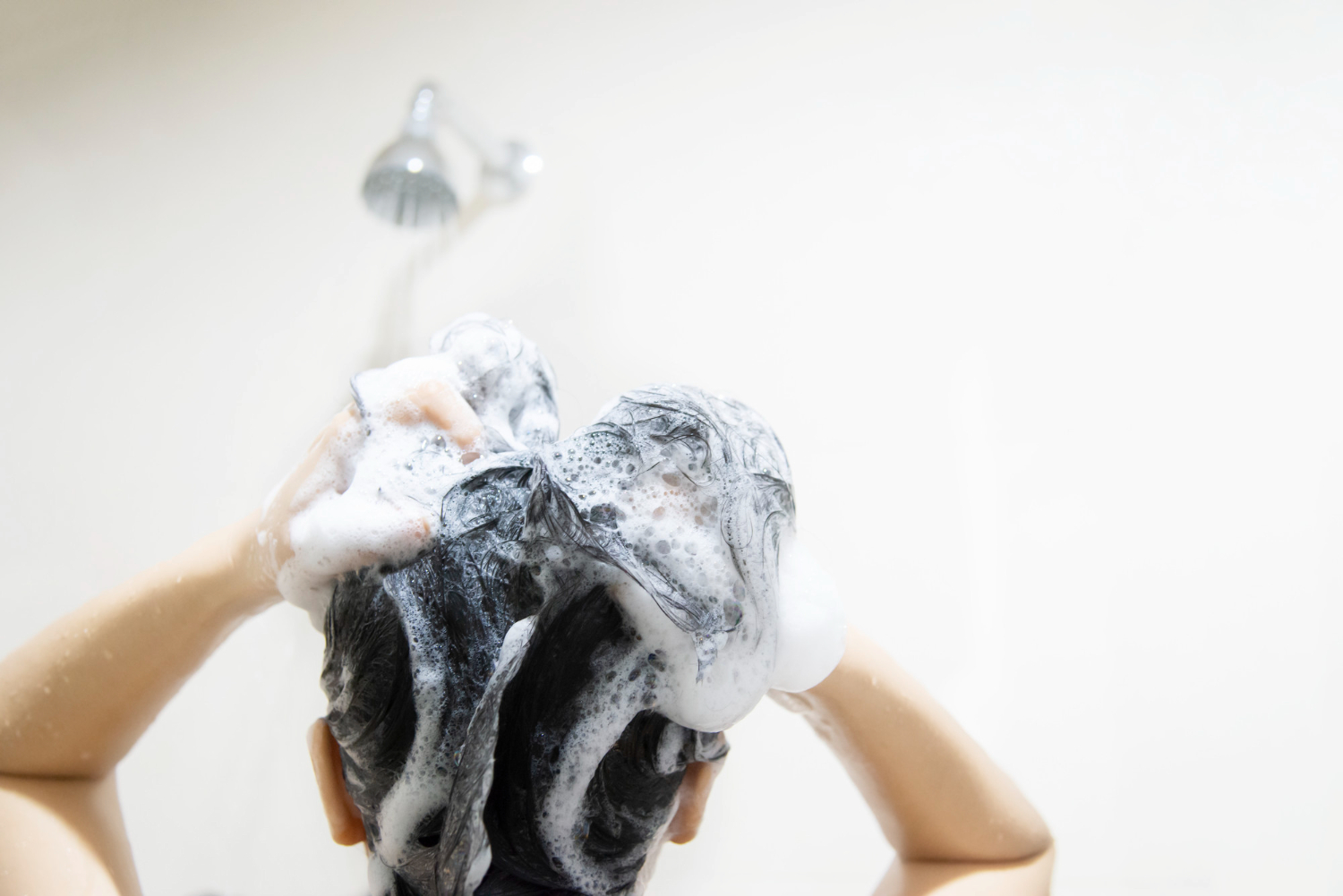
In this article
Maybe not as often as you think, dermatologists and stylists say. You might have heard that shampooing less often is better for your hair, or perhaps you’re considering joining the “no ‘poo” movement in search of healthier, better-looking hair.
The Frequency of Shampooing
Experts agree there’s no single answer to how often you should shampoo. It often comes down to personal preference and your hair’s texture. To guide your decision, consider your hair type and styling choices.
“Alli Webb, a professional hair stylist and founder of Drybar, suggests, ‘It’s fine to go a few days without shampooing.’ For normal hair in terms of oiliness and medium weight, I sometimes tell my clients to go as long as they can without shampooing.”
The idea behind this approach is that shampooing too frequently may lead to less healthy hair.
How Shampoo Works
Basics of Shampooing: Shampoo traps oils. Over-shampooing can dry out your hair, making it prone to breakage, says Dr. Angela Lamb, an assistant professor of dermatology at the Icahn School of Medicine at Mount Sinai, New York City. This is particularly true for certain hair textures, such as those of Black individuals, whose hair is more fragile and at risk for damage.
Hair produces natural oil called sebum. Shampoo is an emulsifier that captures and traps excess oil, dirt, and product residue, which you rinse out to clean your hair.
Maintaining Some Oils: It’s essential to retain some oils in your hair as they provide moisture and protection. Dr. Carolyn Goh, assistant clinical professor of medicine at UCLA, explains, “They provide moisturizing and a protection barrier for the skin and hair.”
Who Should Shampoo Daily?
Only a small group of people need to shampoo daily. This includes those with very fine hair, individuals who exercise frequently (and sweat a lot), or those living in very humid places, says Goh.
“There is no blanket recommendation. If hair is visibly oily, the scalp is itching, or there’s flaking due to dirt, those are signs it’s time to shampoo,” Goh explains. Thicker hair and less oil mean you need to shampoo less often.
Shampooing Frequency by Hair Type
People with dry or curly hair can often wash less frequently without problems. Some may find shampooing every other day or every 2-3 days works well. For certain hair textures, it’s beneficial to extend the time between washes.
The American Academy of Dermatology advises that to keep Black hair healthy, you should wash it once a week or every other week, use a conditioner, perform a hot oil treatment twice a month, protect your hair if you use heat for styling, and use caution with hair relaxers.
How Long Is Too Long?
Styled hair may allow you to go longer without shampooing. “If you’re doing a blowout or using heated styling tools, ensure your hair is super-clean when you start,” Webb says. This makes the style last longer, look better, and reduces the need for frequent use of heat.
Dr. Lamb agrees, highlighting that hair care routines vary based on cultural factors, hair texture and thickness, sweat and exercise levels, and styling methods. For example, if you have a keratin treatment or a blowout, you might not need or want to wash more than once a week to avoid stressing your hair.
Maximum Time Between Washes
Regardless of personal preferences, Dr. Lamb advises not to go longer than 14 days without washing your hair. Some patients only wash once a week, which is fine as long as there are no scalp issues.
Extending Time Between Washes
Many products can help extend the time between washes, and various methods can keep your hair looking good.
“Powders can absorb oil, preventing it from sitting on the scalp,” Lamb says. Leave-in conditioners and re-wetting hair with conditioner (a method sometimes called “co-poo”) can also help.
Personal Preferences and Styling Tips
“Everyone has a different threshold for how oily or texturized they want their hair to feel,” Webb notes. “Dry shampoo is great for freshening and adding volume at the roots.”
To re-energize your style, spray dry shampoo where oil and dirt accumulate: at the roots, hairline, and nape of the neck. “Spray about 3 to 4 inches from your head,” Webb advises.
Preventive Use of Dry Shampoo
You can use dry shampoo preventively. “I’ll have my stylists use it on a fresh blowout for lift. You can also spray it before bed to absorb excess oil overnight,” Webb suggests. This proactive approach helps preserve your style.
Knowing When to Shampoo
Webb offers practical advice: “If it’s Day Five and your style is falling apart, wash your hair. Otherwise, try something different like a side braid or a bun. Use dry shampoo to camouflage and often get the most compliments when you switch things up.”
The Trend and the Stigma
It’s become trendier to shampoo less frequently, with more people going a week or more between washes.
“Many of my patients worry about washing their hair too frequently, yet they really need to wash it more often!” Goh observes.
Caroline Lynch, an IT consultant from Michigan, shares her experience: “I have thick and curly hair, and I started shampooing less frequently a few years ago. I now shampoo about once a week, which has improved my hair quality and saves money, allowing me to buy higher-quality shampoo and conditioner.”
insight
Ultimately, how often you shampoo is a personal choice influenced by your hair type, styling habits, and lifestyle. The key is finding a balance that keeps your hair healthy and looking its best.
Sources
- Quotes and information from Dr. Angela Lamb, Dr. Carolyn Goh, and Alli Webb.
- American Academy of Dermatology recommendations
A Quick Review
Discover the best practices for shampooing your hair, considering factors such as hair type, texture, and lifestyle. Learn how often you really need to wash your hair, the impact of shampoo on hair health, and expert tips for extending time between washes while maintaining a healthy scalp
FAQS
How often should I shampoo my hair?
The frequency of shampooing depends on your hair type, texture, and personal preference. Generally, 2-3 times a week is sufficient for most people
Can washing my hair too often damage it?
Yes, shampooing too frequently can strip natural oils from your hair, leading to dryness and breakage.
Is it okay to use dry shampoo instead of washing my hair?
Dry shampoo can be used to extend time between washes, absorb excess oil, and add volume. However, it should not replace regular shampooing entirely.












